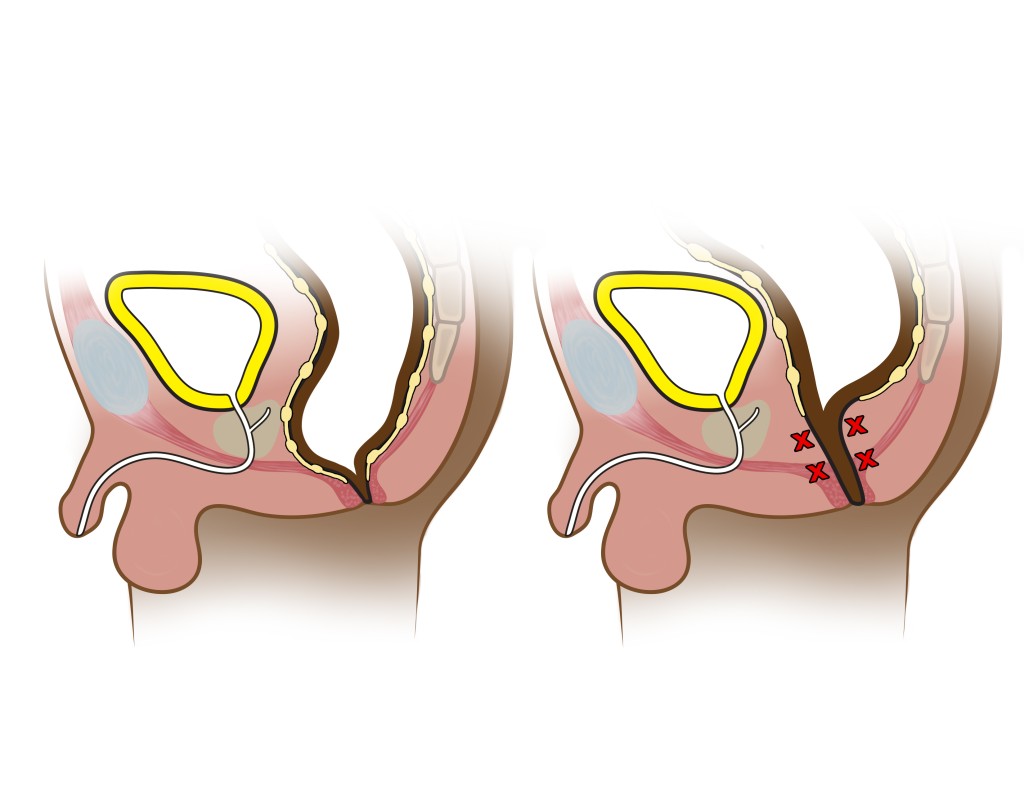Topics

Hirschsprung disease is a condition that children are born with that stops or slows the movement of food and waste through the intestine. It affects about 1 in 5,000 children. It is caused by a problem with the nerve cells (ganglion cells) in the intestine, most commonly the rectum or colon (the lower part of the intestine). Normally these nerves help the muscles in the wall of the bowel squeeze and relax, which pushes food and waste along the way. When these nerves are missing, the bowel cannot push the digested food through, and children cannot have normal bowel movements or have fewer bowel movements than normal.
Diagnosis
Hirschsprung disease is diagnosed by a rectal biopsy, which can be performed awake if your child is under 6 months of age. Older childen undergo biopsy in the operating room. The biopsy will show whether or not ganglion cells are present in the rectum. Sometimes your child may require more biopsies throughout the intestine, called “mapping.”
A contrast enema will be ordered by your team to assess how large your child’s colon is. This may show where the abnormal portion of the intestine is, but biopsies will still be required.
Treatment
Hirschsprung disease is treated by removal of the abnormal intestine that does not have ganglion cells. This procedure may occur shortly after diagnosis, or your team may recommend your child start irrigations prior to surgery. Irrigations involve insertion of a catheter into the rectum and instillation of saline until the stool is mostly clear. If your child cannot tolerate irrigations or is sick, they may undergo an ostomy prior to surgery.